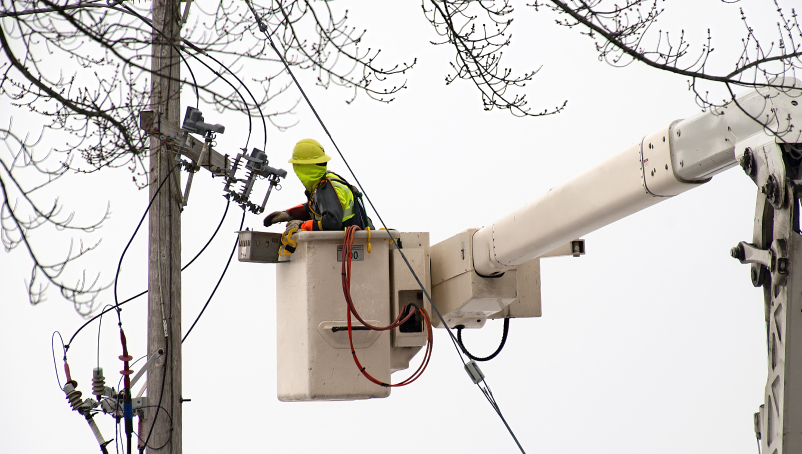Do you need a North Carolina electrical license to work?
You need a license to be an electrician in North Carolina. You can complete a form to start an application, and from there, you can climb the license ladder.
The North Carolina State Board of Examiners of Electrical Contractors (NCBEEC) oversees licensure and awards three primary electrical license classifications:
- Limited license. Allows the licensee to engage in a single electrical contracting project up to $60,000 and under 600 volts.
- Intermediate license. Allows the licensee to engage in a single electrical contracting project up to $150,000.
- Unlimited license. Allows the licensee to engage in any electrical contracting project regardless of value.
The licensing board also issues special restricted electrical licenses (which are not the focus of this guide):
- Residential Dwelling License
- Fire Alarm/Low-Voltage License
- Plumbing, Heating and Air Conditioning License
- Swimming Pool License
- Groundwater Pump License
- Electric Sign License
- Elevator License
Unlike many other states, North Carolina doesn’t have state-issued journeyman or master-level licenses, but some local municipalities may issue them, so check with local authorities where you plan to work.
Bond and insurance requirements for an NC electrical license
Business insurance requirements vary for electricians in North Carolina. You can protect your small business with electrician insurance and get the specific coverage to fit your needs depending on whether you’re self-employed, own your own business or work as an employee.
Contractor surety bond
North Carolina requires contractor surety bonds for intermediate and unlimited electrical licenses. ($60,001 and $150,001, respectively).
Surety bonds are similar to insurance. You agree to pay a fee to guarantee a client’s project completion. The guarantor will pay the client a predetermined amount if the project isn’t completed. Learn more about contractor surety bonds.
Workers’ Compensation insurance
North Carolina law mandates that you must have workers’ compensation insurance if you employ three or more individuals. North Carolina requires employers to have this insurance to help cover costs related to medical expenses, workplace injuries and even lost wages.
Learn more about workers’ compensation for contractors.
General Liability insurance
General liability insurance can help cover the costs if you cause a work-related accident, such as damage to someone’s property or a customer’s injury. It can also help protect against personal and advertising injuries.
Learn more about general liability insurance for contractors.
Commercial Property insurance
You can help cover your work property and materials (like inventory and equipment) with commercial property insurance. This coverage is available for building owners and renters and can help cover incidents such as fire or theft.
Business Owner’s Policy
A business owner’s policy, or BOP insurance, provides broad coverage of general liability and commercial property policies combined in a single, more cost-efficient bundle. It helps cover damage that you or your employees may inadvertently cause to another person’s property and helps protect your business inventory in the event of a fire or other covered event.
Tools and Equipment insurance
Your tools are key to running a successful business. You can use tools and equipment insurance to help protect work gear that gets lost, damaged or stolen.
Commercial Auto insurance
Use commercial auto insurance for accidents involving your work vehicle since personal auto coverage may not always cover work-related incidents. It can help cover things like towing and repairs.
In North Carolina, coverage minimums are:
- $30,000 of bodily injury per person or $60,000 per accident.
- $25,000 of injury to or destruction of property per accident.
How to get an electrical contracting license in North Carolina
Each license level in North Carolina has the same basic requirements. (We’ll go over specific differences below). Here are the requirements for all electrician licenses in North Carolina:
Your license is valid for one year once it is processed.
Limited license requirements
To get your limited license in North Carolina, you need two years of experience. Under the Limited license, you can take on one electrical project for under $60,000 with no more than 600 volts. The cost to get this license is $100.
You must get approval from the Board to take the license exam to get this license. When you receive approval from the Board, you can schedule the exam through PSI.
The test consists of 100 multiple-choice questions, which must be completed in six hours. Exams are open-book, and each candidate must bring their own copy of the 2020 National Electrical Code (NEC) to the test site. You must score a 70% to pass.
Intermediate license requirements
To get your intermediate electrician license, you need four years of total experience, two and a half of which must be primary experience. You must pay the $150 application fee and show proof of bonding to qualify.
You must get approval from the Board to sit for this exam. PSI will also administer this exam, which is also open-book and timed.
Once you have this license, you can take on projects up to $150,000.
Unlimited electrician license requirements
For the unlimited electrician license in North Carolina, you must pay $200. You also need five years’ experience, four of which must be primary. You also need to show proof of bonding.
Applicants must also submit written statements from at least two individuals who know the applicant’s electrical work experience and can attest to the applicant’s ability to supervise and direct all electrical work.
However, in gaining this license, the size of projects you take on is unlimited if you fulfill these requirements.
Once again, get approval from the Board to take this exam. PSI administers this exam, which is also open-book and timed.
License reciprocity for North Carolina electricians
North Carolina has reciprocity agreements with the following states:
- Alabama
- Florida
- Georgia
- Louisiana
- Mississippi
- Ohio
- South Carolina
- Tennessee
- Texas
- Virginia
- West Virginia
You must fill out a reciprocity application form if you come from outside the state.
North Carolina license renewal requirements
Electrical contractor licenses in North Carolina are valid for one year. You will get a renewal notice 60 days before your license expires. There is a $25 late fee on late renewals.
License holders — in the limited, intermediate, unlimited and specialty categories — must complete eight hours of approved continuing education for license renewal.





